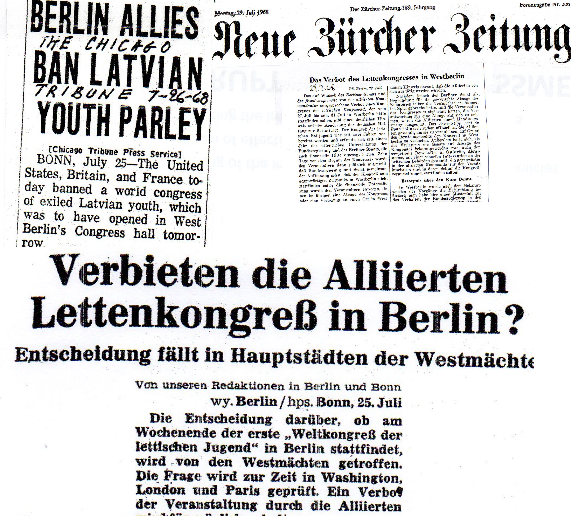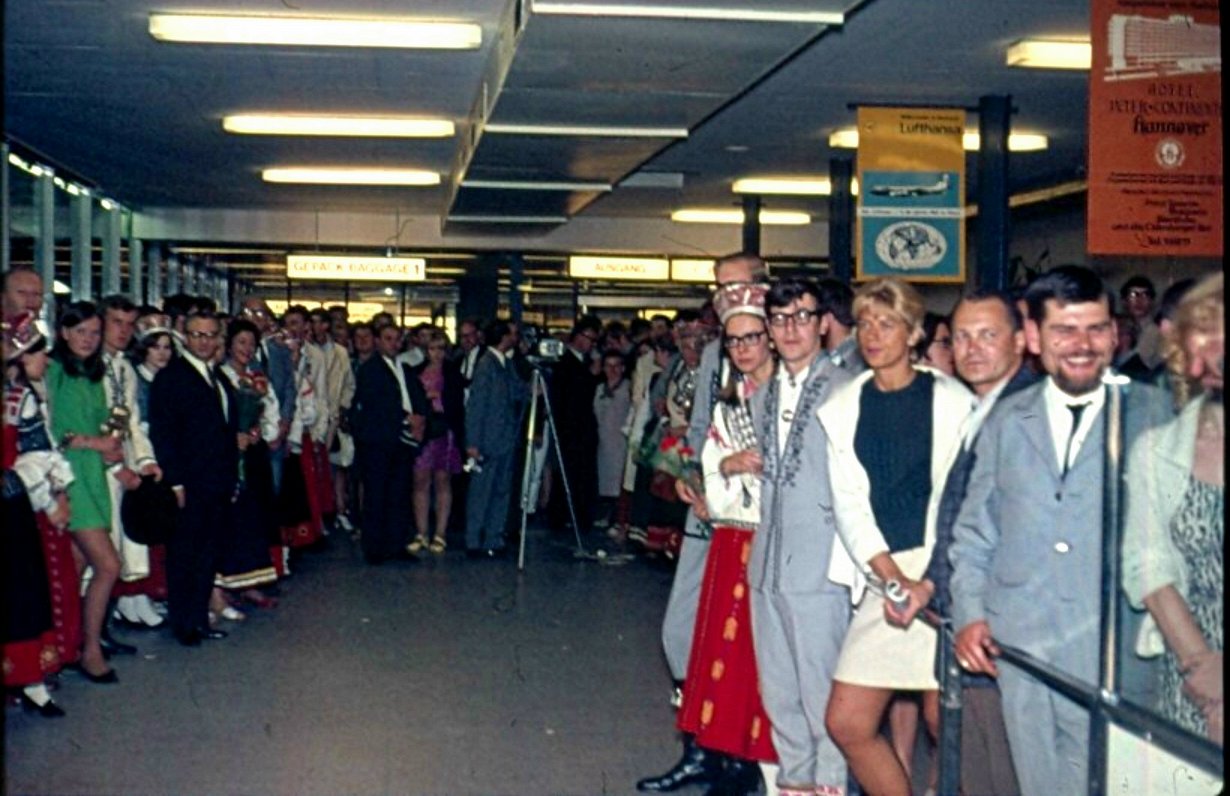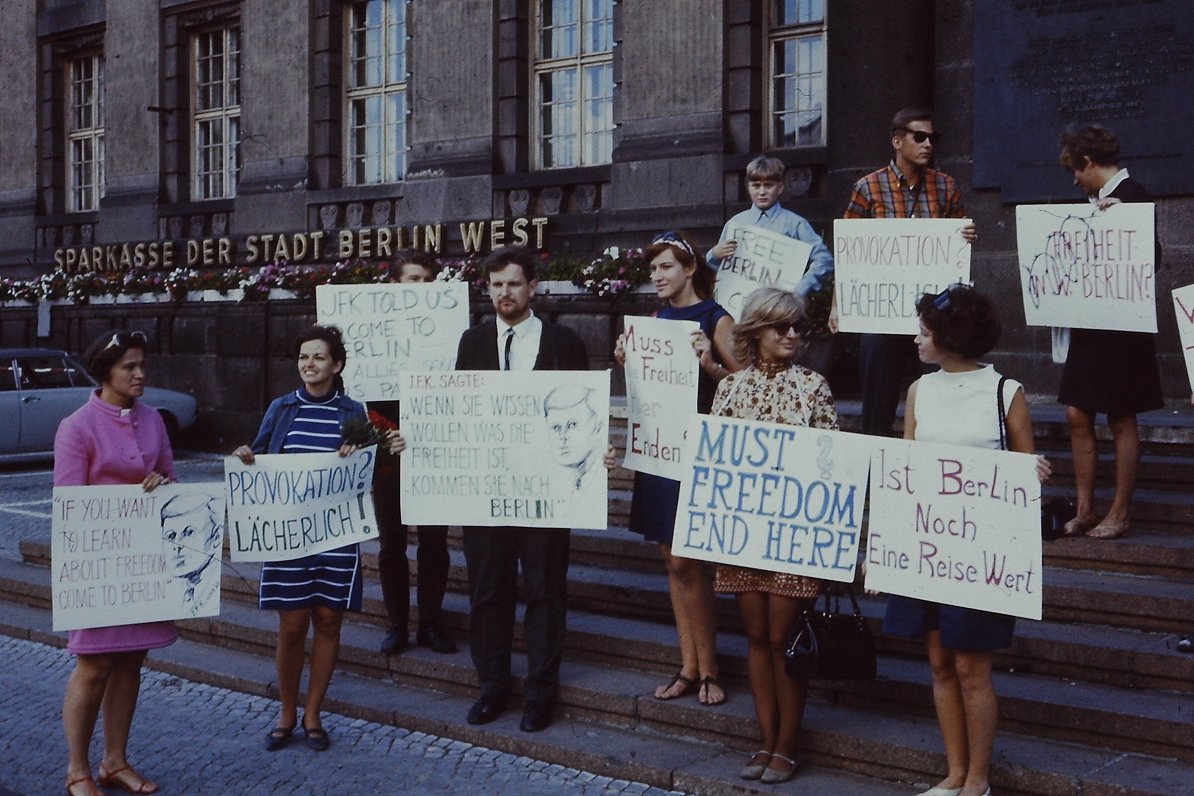The congress, which had been organized for two years before by the youth offshoot of the European Latvian Association, was moved to Hanover a day before it was to start, namely on July 25, 1968 when politics expert Rasma Kārkliņa, in charge of organizing the event, received notice from the military command of the city that the congress is to be cancelled.
Nevertheless, the ban attracted worldwide attention to the Latvians' cause, with the event and ensuing protests receiving copious international coverage.

(Image credit: The National Library of Latvia.)
Politologist Ivars Ījabs points out that Western Berlin was not part of West Germany, as it was still an occupied city at the time. The city was still controlled by the victors of World War II, with Western Berlin under the US, France, and the UK; and East Berlin under the USSR.
"The history of Berlin is practically the history of the Cold War. And Berlin, as if it were a small jewel, reflects the different interesting facets of the Cold War era. It is definitely worth noting that Latvians also had something to do with it--that Latvians also tried carrying out their symbolic initiatives here," said Ījabs.
While the powers that be prevented the congress from happening, many of the participants were able to make it to Hanover, where the spirit of protest had not died down.
A delegation was formed to protest the decision at the US Embassy in Bonn. Latvians were admitted by US ambassador Henry Cabot Lodge Jr, participant and current MP Atis Lejiņš recalls.
"He told us, well, what could we do. We're here for you, but if we had allowed you to stay [in Berlin], Moscow would use it as an excuse to march into Czechoslovakia. Which is what happened a month later. Barring us was completely unacceptable, as [the USSR] did it anyway...we were just a symbol," Lejiņš recalls.

(Expecting the arrival of Latvians at the Hanover Airport. Image credit: The National Library of Latvia.)


























